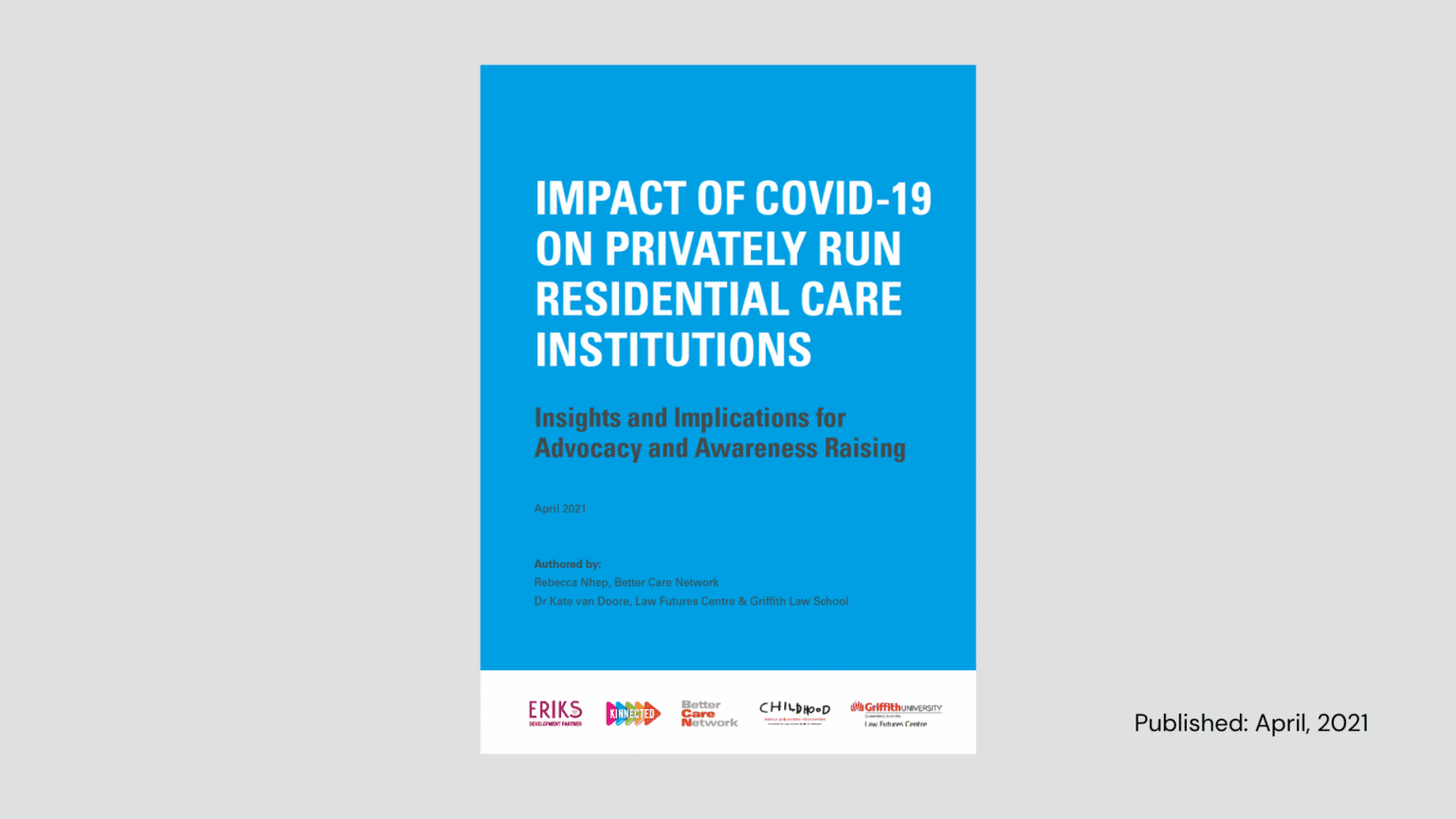Over the past decade, the number of orphanages has increased significantly in many poor countries. This occurs despite the fact that as many as 80 to 90 percent of the children have at least one parent alive. The main reason for placement in orphanages is poverty.
The report “Impact of COVID-19 on privately run residential care institutions” released today shows that the majority of orphanages (81 percent) have seen reduced revenues during the pandemic. The crisis has negatively affected the children but has at the same time led to most of the children being reunited with their families. Over 90 percent of the managers report that this has led to discussions about changing the way they work and increasingly providing support to children in their home environments instead.
– It is worrying that many children during the pandemic have been sent home without proper follow-up and without examining whether the children’s families need extra support in a particularly difficult time. The report also dispels the myth that children are in orphanages because they are orphans. Most of the children growing up in orphanages in fact have relatives alive who both want to and can take care of these children but need some support. To work with that as the first option, and only when everything else has been tried place children in orphanages, should be the way to work – both in Sweden and in other countries, says Britta Holmberg, Program Director and Deputy Secretary General at the World Childhood Foundation.
The report also confirms that the contribution of foreign volunteers to orphanages is mainly financial and that the volunteers are not needed to take care of the children. When the volunteers disappeared, the relationship between the children and the locally employed staff was strengthened and the well-being of the children improved. Despite this, all orphanages that had previously received foreign volunteers expected to do so again after the pandemic.
“Impact of COVID-19 on privately run residential care institutions” is written by Rebecca Nhep and Kate van Doore – some of the world’s leading experts in the areas of children in institutions and human trafficking. The report has been produced by Better Care Network, Griffith Law School, World Childhood Foundation and Eriks Development partner, and has been carried out with support from the Swedish Postcode Lottery, ACC International and Rethink Orphanages Australia.
Read the full report here.




